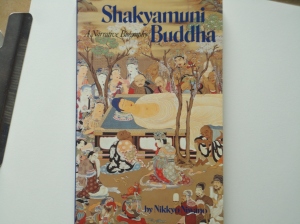We now finish Aristotle’s account of friendship, in Books VIII and IX of the Nicomachean Ethics. Of the latter book, chapters x–xii are below. I wonder whether the last one or six chapters of the book are meant as a culmination or a dénouement. Are we to see a panorama, having reached the high point of our deliberations, or are we just tying up some loose ends?
-
-
Meta
-
Archives
-
Categories
- Art (168)
- Music (3)
- Poetry (97)
- Homer (72)
- Sylvia Plath (4)
- T. S. Eliot (11)
- Prose (59)
- Visual Art (26)
- Film (5)
- Education (52)
- Facebook (14)
- History (66)
- Archeology (6)
- Tourism (31)
- Language (33)
- Fowler (5)
- Grammar (12)
- Strunk and White (9)
- Turkish (7)
- Logic (12)
- Mathematics (69)
- Exposition (19)
- Mathematical Topics (10)
- Calculus (4)
- Conic Sections (6)
- Mathematicians (27)
- Archimedes (8)
- Euclid (19)
- G. H. Hardy (7)
- Philosophy of Mathematics (16)
- Nature (27)
- Philosophy (268)
- “God is a circle …” (5)
- Categorical Thinking (6)
- Causation (12)
- Contradiction (8)
- Criteriological Science (8)
- dialectic (28)
- Freedom (22)
- Ontological Proof (6)
- Pacifism (9)
- Persons (221)
- Aristotle (49)
- Collingwood (155)
- absolute presuppositions (17)
- “ceases to be a mind” (5)
- New Leviathan (70)
- overlap of classes (11)
- Principles of Art (45)
- question and answer (5)
- Descartes (18)
- Leo Strauss (9)
- Midgley (13)
- Pirsig (30)
- Plato (97)
- Philosophy of History (26)
- Sex and Gender (12)
- Stoicism (2)
- Psychology (19)
- Science (29)
- Galileo (7)
- Turkey (95)
- coup (3)
- Istanbul (57)
- Bosphorus (5)
- Gezi (8)
- The Islands (3)
- Tophane (3)
- Nesin Mathematics Village (26)
- Uncategorized (8)
- West Virginia (16)
- Art (168)
-
Recent Posts



